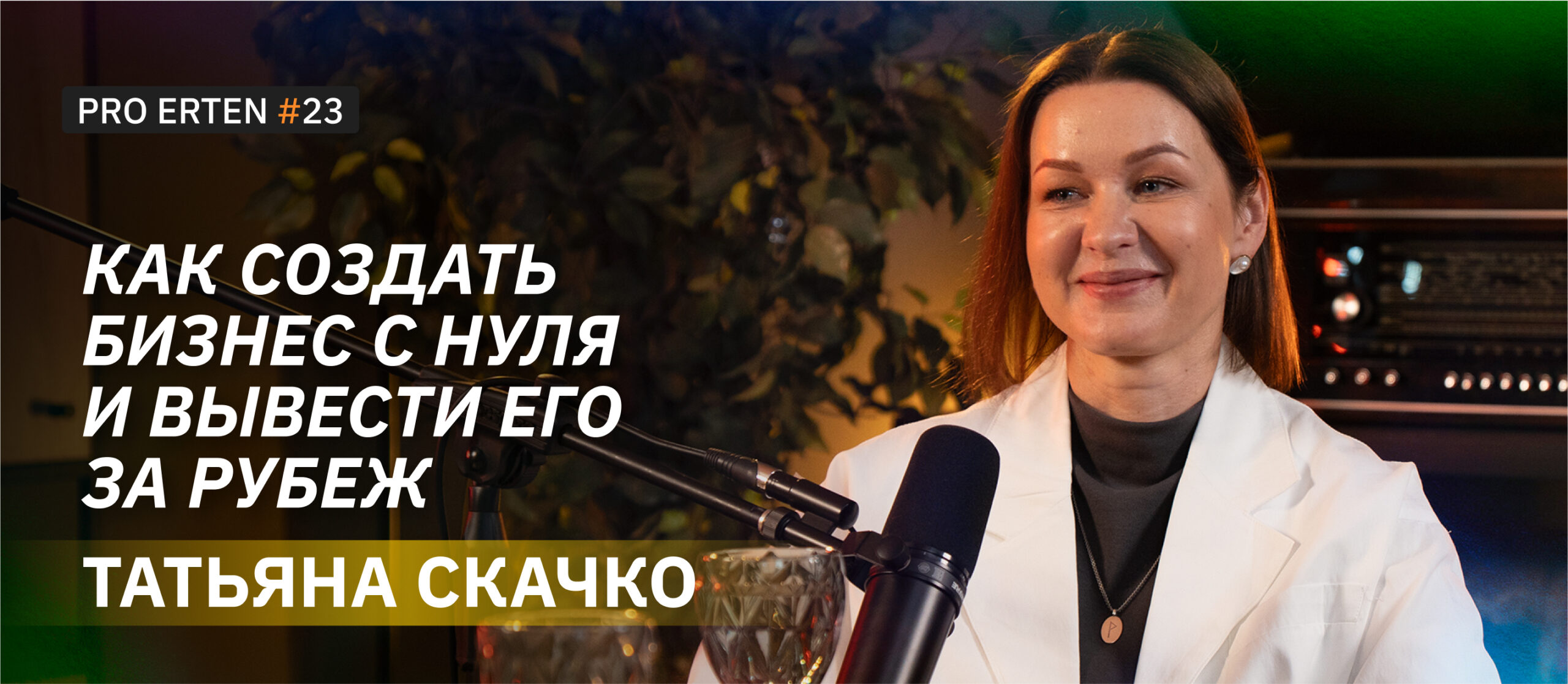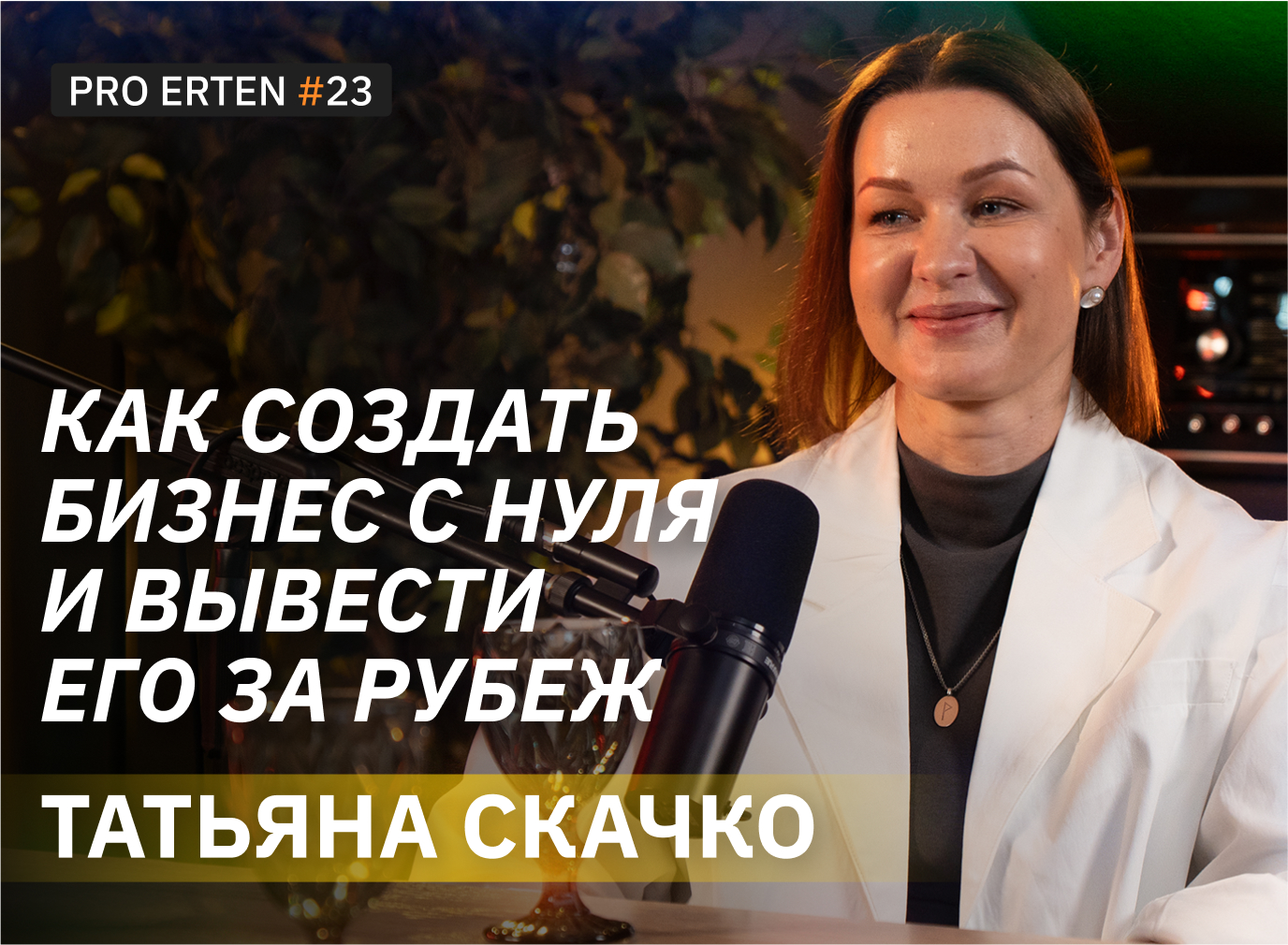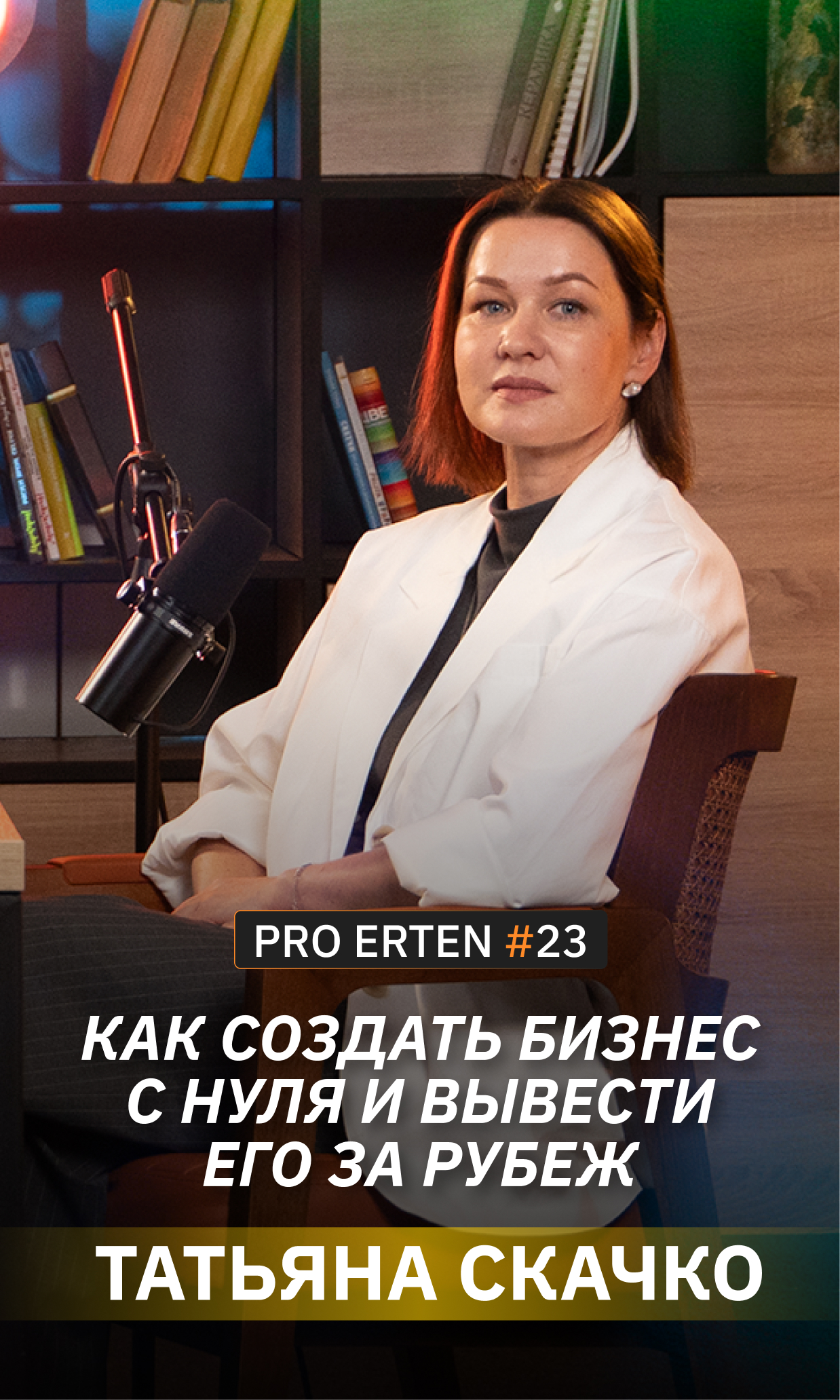We all know the struggles of the modern education system. They're the same in almost every country. Basic education is often lacking, while private schooling or prestigious universities remain a dream for many. Standard curricula are outdated and irrelevant. And that’s just scratching the surface: there’s a shortage of qualified teachers, piles of pointless paperwork, not enough classroom hours, no timely feedback between textbook creators and teachers, overcrowded classrooms, and especially in rural areas, the list goes on.
Yet, it's in schools and universities that we lay the groundwork for our entire lives, our professional and creative success, and the chance to build a prosperous future for ourselves and our families.
Enter Nursultan Dyussebayev, founder of the Kazakhstani startup BeyimTech and a member of Astana Hub. He sees modern technology as the key to solving these educational problems. In a chat with Er10.media, he shared his vision for how artificial intelligence, apps, and edutainment can transform the global knowledge market.
Follow Kazakhstan’s Startup Movement in the "100 Startup Stories of Kazakhstan", a collaborative project by ER10 Media and Astana Hub. This initiative highlights the most innovative Kazakh startups, showcasing projects that stand out for their creativity and impact. Among the heroes are Astana Hub residents, as well as creators of other innovative technological products and services. The content is available in Kazakh, Russian and English.
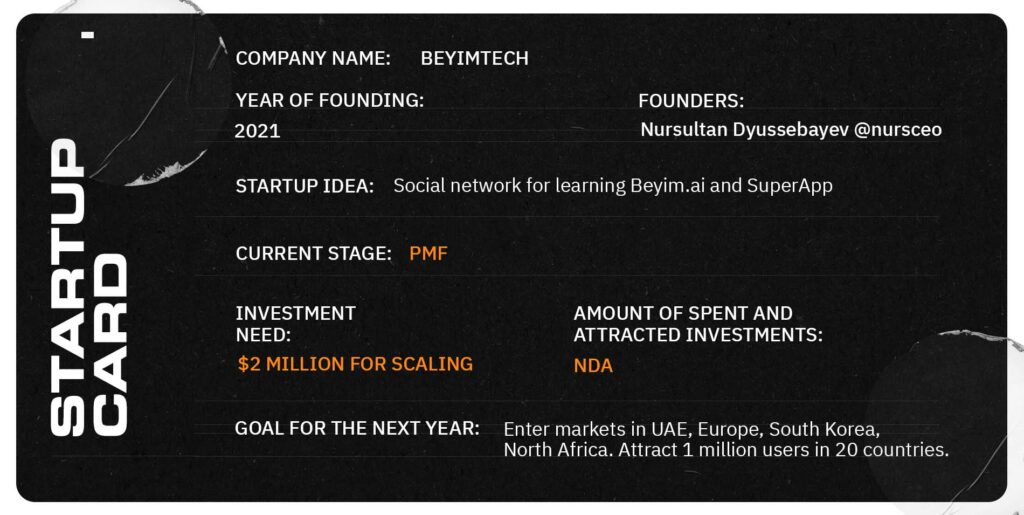
– What is the uniqueness and mission of BeyimTech?
– "When we started our research in 2021, we knew AI would be central. Our products leverage neural networks to deliver personalized educational content to each student. The current reality? One teacher, a uniform set of textbooks, and a standard curriculum for all. A teacher can only give individual attention to about 12 students, leaving 18 without. This leads to knowledge gaps and poor academic performance. Parents often hire tutors to fill these gaps, adding stress and not always yielding positive results. Conversely, some parents can't afford tutors and neglect their children's education, resulting in unemployment and low-paying jobs down the line.
Another issue is standardized textbooks that don’t account for individual differences. There’s a lack of timely feedback between authors, teachers, and students.
– Tell us about the inception of your startup. What was the inspiration?
– "During the pandemic, Kazakhstan launched the OnlineMektep platform, a joint effort by Nazarbayev Intellectual Schools and Bilim Media Group. It attracted about 2.5 million students and 200,000 teachers. Post-pandemic, when online learning became a global norm, we asked: What should a digital platform look like to truly benefit the education system, deliver solid knowledge, and assist students and teachers? OnlineMektep was functional but essentially a ‘clickable electronic textbook’ with standard info. We knew this format was outdated.
In 2021, BeyimTech’s research project began at NIS. We envisioned the perfect future online learning platform. Our team analyzed over 40 educational services like Blackboard, Duolingo, Moodle, and Canvas, studied methodologies and programs, and consulted with international experts. This research took about a year and a half, during which we shaped our vision. We then tested various educational services in 20 schools. Over three years, through deep scientific research, we developed our online learning methodology.
This process made us ready to create our educational platform based on our findings. We formed the BeyimTech startup team and began seeking investments.
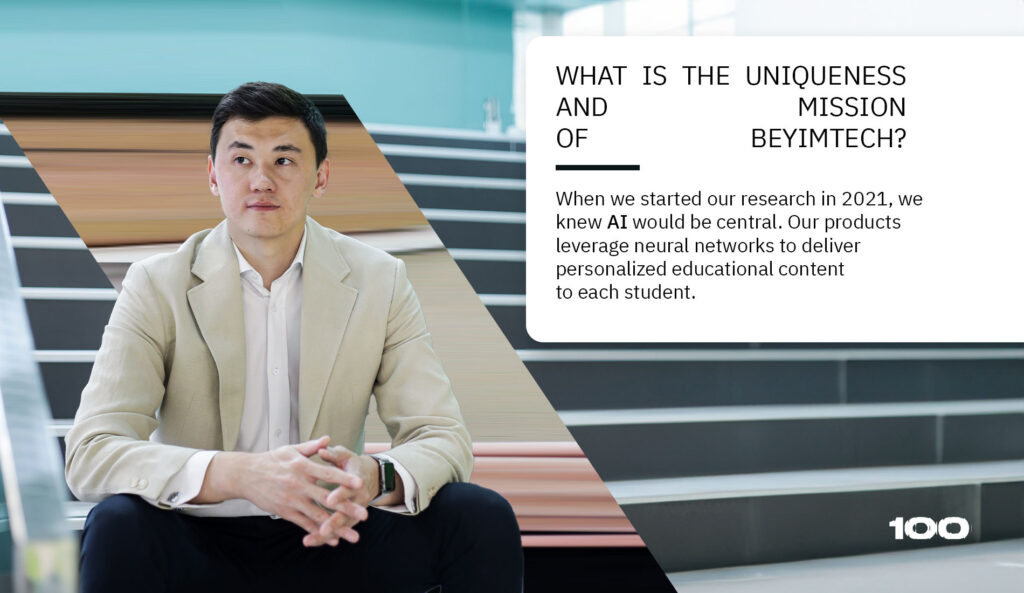
– What sets you apart from Kazakhstani and global competitors?
– "Our goal is to create an advanced educational space, starting in Kazakhstan and then globally. We aim to become a top EdTech platform worldwide. We’re developing a SuperApp with several products. One is Beyim AI, a social network for learning that offers both core curriculum and additional materials. Another product, Beyim Synaq, helps students prepare for exams.
Our app redefines education by making it personalized, tailored to each student’s needs, and providing accurate recommendations to students, teachers, and parents.
While most startups tackle a single issue, we’re building an educational super-app that will become an ecosystem for continuous school learning, similar to Kaspi.kz, but for education.
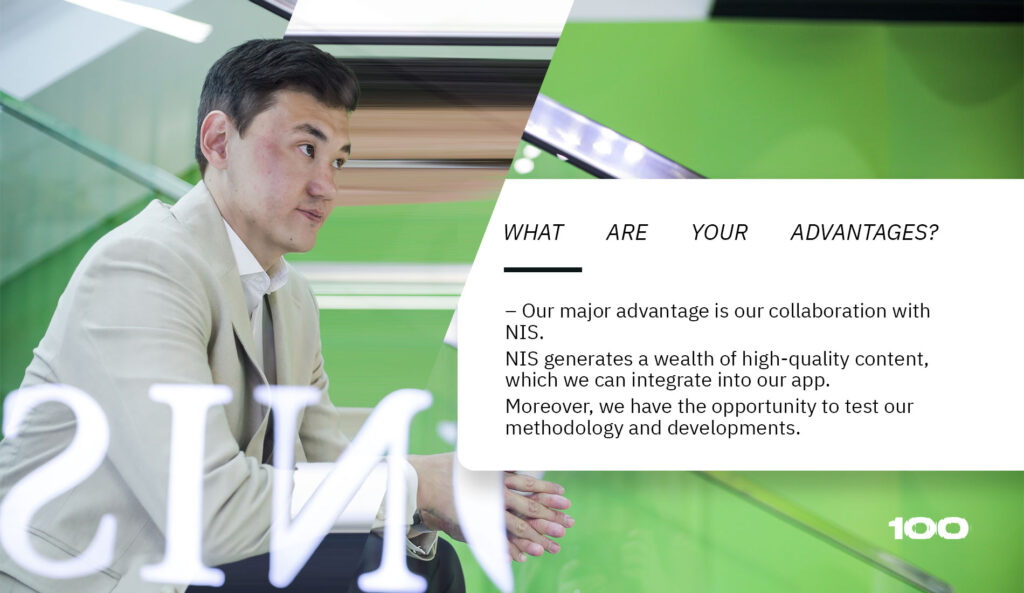
– What are your advantages?
– "Our major advantage is our collaboration with NIS. These aren’t just schools; they’re practically a parallel education system with top teachers, advanced methods, vast resources, and international recognition. NIS generates a wealth of high-quality content, which we can integrate into our app.
Moreover, we have the opportunity to test our methodology and developments. This puts us in a unique position. Few startups can spend three years developing and testing their hypotheses and checking the product with thousands of users, getting instant feedback.
– What is your monetization model?
– "We’re currently testing various monetization models and haven’t finalized one yet. A likely model is freemium, where the main content is free, and some features are offered for a fee. This approach allows us to demonstrate our product’s quality to the maximum number of users. I believe we can attract over a million users within a year this way. We also have commercial offers for B2B and B2C. We’re ready to connect educational institutions to our platform.
– What stage is your startup currently at?
– Our product is at the MVP stage. Beyim.ai was launched in May and is already used experimentally in NIS to obtain new research data. The app has 25 thousand students and 2 thousand teachers across Kazakhstan using it.
We launched the Beyim Synaq app around February. It has about 25 thousand downloads and 11 thousand users.
– Do you need investments for project development?
– "Yes, we’re ready to attract investments for scaling up. Of course, investor participation is a matter of negotiation, but I think the average investment could be around $400,000.

– Which markets do you plan to conquer and in which countries do you intend to scale?
– "We already have contacts with foreign partners and plan to implement B2B solutions with them. We’re looking towards the UAE, particularly Dubai, studying their needs, and traveling there for presentations. We also represented Kazakhstan at an exhibition in London, where we had promising negotiations. The UK might be our first market in Europe. We also participated in an education conference in South Korea at the invitation of their Ministry of Education.
– So, you already have agreements and interest from other countries?
– "Yes, we initially developed the project as an innovative educational platform that could operate worldwide. That’s why we brought in experts from the USA, and Arizona State University is our strategic partner. They helped us build our teaching methodology.
– Do you plan to become an international unicorn?
– "That’s a lofty goal, but every startup aspires to it. Our first goal is to get into the Top 100 global educational platforms.
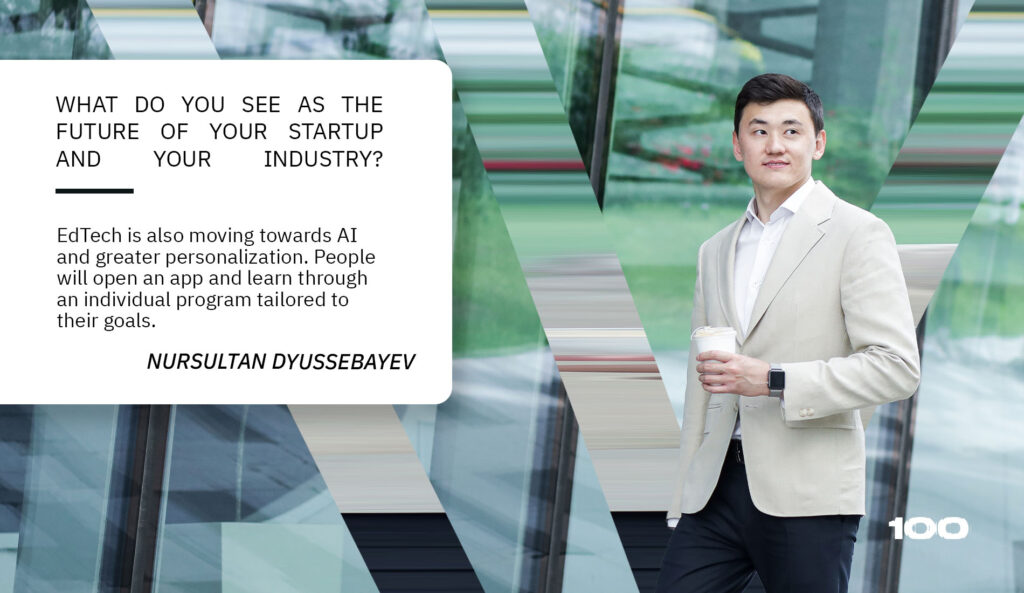
– What do you see as the future of your startup and your industry? How will technologies develop?
– "When we launched in 2021, we incorporated AI capabilities into our product. Over three years, there’s been a real boom in this technology. It’s become more accessible and advanced. I see the future of education and our product in close interaction with AI.
I envision our platform as a global professional social network for teachers, like LinkedIn or Instagram, but in an edutainment format.
EdTech is also moving towards AI and greater personalization. People will open an app and learn through an individual program tailored to their goals. Instead of standard textbooks, children will get personalized programs adapted to their needs. The goal is to provide quality content at the right time for every child.
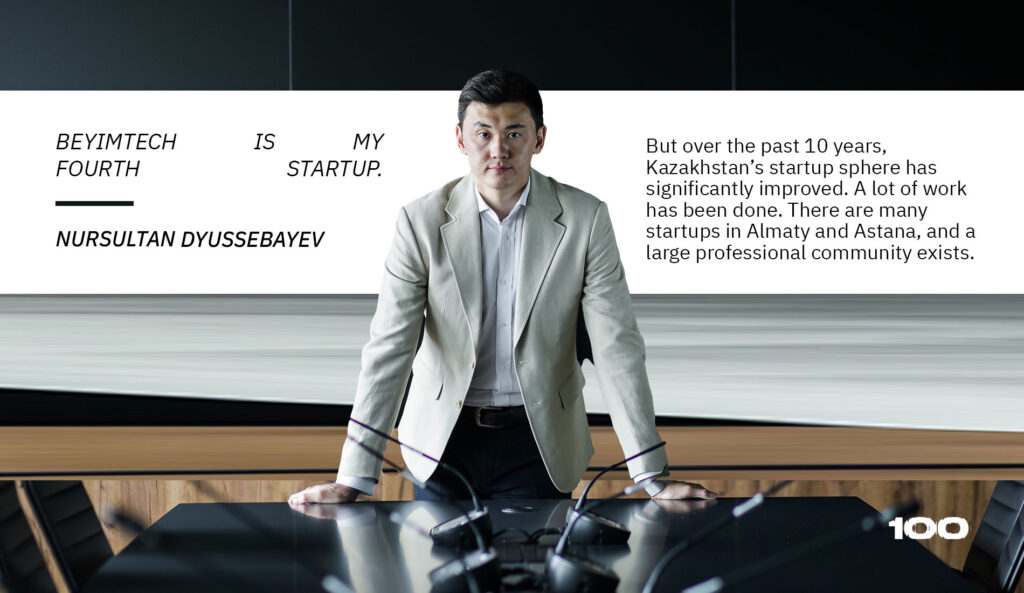
– Do you think Kazakhstan has created comfortable conditions for the development of the startup industry?
– "BeyimTech is my fourth startup. I’ve launched startups not only in Kazakhstan but also in Silicon Valley. I can compare the situation over time. In terms of innovation development, we lag behind the USA and Europe. They have significant investors and funds. But over the past 10 years, Kazakhstan’s startup sphere has significantly improved. A lot of work has been done. Acceleration programs have emerged, there’s support from Astana Hub, and large conferences like CEVF and Digital Bridge are held. There are many startups in Almaty and Astana, and a large professional community exists. Now, I think we need to focus on the regions and provide local young people with the scientific and financial base for development.


